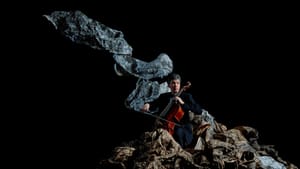Stay in the Loop
BSR publishes on a weekly schedule, with an email newsletter every Wednesday and Thursday morning. There’s no paywall, and subscribing is always free.
Drowning out the music
Bowerbird and the Pig Iron School present Bartok’s Monster

Great music speaks for itself. Yet, in Bartok’s Monster, a collaboration of several Philadelphia-based arts organizations that premiered with two performances over the weekend at the Annenberg Center, nearly everyone tried to speak for it. With the potential exception of the talented Daedelus Quartet, it remains unclear whether anyone actually has something to say.
Presented as part of the Penn Live Arts season by Pig Iron School, Bowerbird, and the installation artist Sebastienne Mundheim, Bartok’s Monster took its inspiration from the pretentiously titled Avoid the Day: A New Nonfiction in Two Movements by University of Pennsylvania lecturer Jay Kirk. The book concerns itself at least partially with the composer’s String Quartet No. 3, which had its world premiere in Philadelphia in 1927.
But as the Lecturer told the audience early in the hour-long performance, the real subject of Kirk’s work is Kirk himself. And while the interlocutor introduced himself as a musicologist from the University of Pittsburgh, local theatergoers recognized him instead as Jaime Maseda, a Barrymore-nominated actor who has worked extensively with Pig Iron and other devised performance groups. Clearly, misdirection was in order.
What do the creators know about music?
We sensed from Maseda’s comments that the creators of the piece—save the Daedelus forces, of course—don’t know very much about music. They didn’t seem much interested in delving beneath the surface either. There were references to classical music luminaries like Richard Wagner and Alban Berg who influenced Bartok’s style, along with snatches of their compositions. Yet, these soundbites lacked depth, and anyone not intimately familiar with their works might’ve been left perplexed by their fleeting inclusion.
The piece also touched on Bartok’s extensive musicological efforts to preserve the folk traditions of his native Hungary, which he wove into many of his own works. Maseda’s Lecturer wondered if this constitutes a kind of unethical appropriation—both using something that doesn’t belong to you for your own gain and perverting it through a sort of transfiguration. It’s an interesting question, but it was handled in too facile a manner here.
Poor performance art
As a work of performance art, the piece failed on nearly every level. Dan Rothenberg’s direction was meandering and cloudy, unable to wrangle a script that interrupts itself whenever it gains any sense of forward momentum. Although Mundheim supplied some compelling visual imagery—a long, red strand of fabric extracted from a phonograph was particularly arresting—her movement design volleyed between rudimentary couplings and experimental theater cliché. The barefoot, black-clad students of the Pig Iron School flopped aimlessly around the stage of the Harold Prince Theatre.
Maseda nicely captured a particular kind of academic pretension in his performance, but his character receded too often. In contrast, the Daedelus Quartet sat center stage for the entire performance, but it was not until the final moments that Rothenberg and Mundheim tried to involve them in the action. If this were an actual lecture, wouldn’t they find ways to participate and respond?
The thrill of Bartok
In the musicians’ case, it ultimately didn’t matter. They had the music to fall back on, and when they finally performed Bartok’s quartet—the Frankenstein-like monster of the title—it was thrilling. And everything you needed to know was in the notes.
“I am a vampire,” the Lecturer declared after the silence returned. “I am sucking the life out of the music.” I couldn’t say it better myself.
What, When, Where
Bartók’s Monster. By Jay Kirk, Tom Kraines, Sebastienne Mundheim, and Dan Rothenberg; directed by Rothenberg. Bowerbird and Pig Iron School. January 21, 2024, at the Annenberg Center’s Harold Prince Theatre, 3680 Walnut Street, Philadelphia. (215) 898-3900 or pennlivearts.org.
Accessibility
The Annenberg Center is a wheelchair-accessible venue. Call the box office with specific seating needs, including space for companions and service animals.
Sign up for our newsletter
All of the week's new articles, all in one place. Sign up for the free weekly BSR newsletters, and don't miss a conversation.

 Cameron Kelsall
Cameron Kelsall